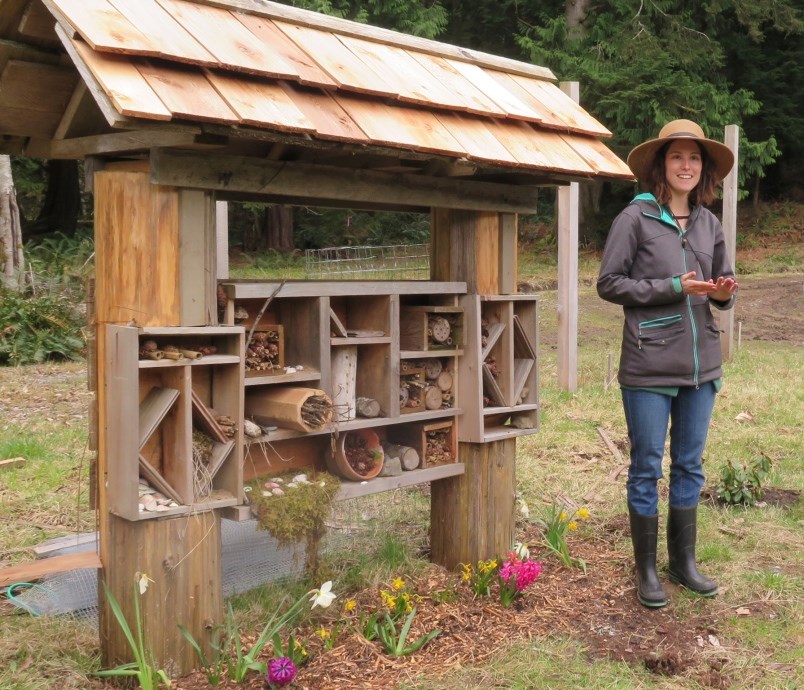For more than 20 years, Bowen Island developer John Reid has been passionate about creating neighbourhoods that take nature into account. Even before he knew the term “conservation development,” John was focused on preserving greenspace and protecting the environment.
In 2016, John hired Jessica Mitts, an aspiring young farmer on Bowen Island, to co-ordinate a new community garden on a portion of his Grafton Lake Lands development. He has also planted an orchard of 100 fruit trees within an eight-acre Agricultural Land Reserve (ALR) on the property and set aside a 227-acre nature preserve. John hopes that the White Swan Orchard and Grafton Community Garden will become a hub of future community gardens on Bowen.
Jessica shares John’s commitment to protect and preserve agricultural land for the purpose set out by the Agricultural Land Commission. And, she says, “If you farm a smaller percentage of the land and look to protect the rest of the land — whether it be a forest, grassland or marsh — this will enhance the biodiversity of plants and animals on site and create a healthier environment to farm.”
“Growing more food locally and organically will enhance our food security here on Bowen and support our local environment,” says Jackie Bradley, a founding member of the Bowen Food Sovereignty group.
In “Every Bite Counts,” a report by the Canadian Centre for Policy Alternatives, the authors write that British Columbia imports about half its food. They conclude that, “if BC shifted 1.5 per cent of its annual food consumption to local sources, the province would supply 80% of its food needs by 2030.” In a B.C. Ministry of Agriculture study on food self-reliance, the largest shortfall identified was fruit and vegetable production.
Climate change and the pressures of a growing population are both seen as threats to our current food system. Being more self-reliant with local production is an important hedge against such disruptions to our food supply. “Of course, one obvious way to increase food self-reliance is to grow your own food,” says Jessica.
While the number of farms and farmers continues to decline in BC and worldwide, Jessica represents hope for the future. She personifies a positive trend as the percentage of women and people under 35 in farming begins to edge up slightly, as reported by Statistics Canada in 2016.
Jessica is helping to stimulate local food production by offering workshops on topics such as composting, permaculture, and pollinators. She is currently on the look out for volunteers to join work parties at the orchard and is accepting applications for a couple of raised beds at the Grafton Community Garden. Contact Jessica at [email protected]




